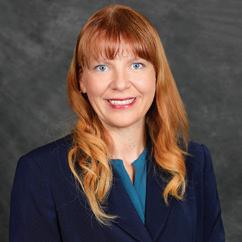
4 minute read
Aircraft Deductions
For most active business operations, establishing that the aircraft is an ordinary and necessary business expense pursuant to Internal Revenue Code Section 162 is an easy threshold to meet. Aircraft are vital transportation equipment, that have repeatedly been accepted as useful tools by the Internal Revenue Code and courts. In determining whether the aircraft is a business asset pursuant to Section 162, taxpayer intent is considered when considered in conjunction with an objective industry standard.
The challenge in taking deductions, provided that the aircraft acquisition is properly structured and managed to avoid inadvertent tax traps, lies in the evaluation of the use of the aircraft over time. It remains an ongoing responsibility of the business owner to maintain an aircraft flight log that accounts for the purpose of every passenger on each flight, as well as the purpose of any deadhead trips. See, e.g., 26 CFR § 1.274-10. In addition to the log, retaining supplemental documentation supporting the business trips, such as meeting agendas, e-mails, and contracts, can be used to solidify travel deductibility. Having an organizational system to maintain these records contemporaneously makes the audit process much less disruptive and smoother. It is critical that aircraft owners understand that use requirements extend beyond the year in which bonus depreciation may have been taken, and endure throughout the period of aircraft ownership.
Advertisement
2. Confirm that all Entertainment Use and Personal Use is Properly Accounted For
All personal use of a business aircraft results in a tax consequence to the aircraft ownership entity and related businesses taking tax deductions. This includes the presence of a personal passenger on any business trip. However, there is a stark difference in the treatment of trips for entertainment purposes, and those taken for personal non-entertainment reasons. Provided that a specified individual is eligible to receive fringe benefit compensation, they may be able to impute income pursuant to standard industry fare level (or “SIFL”) rates and preserve the deductibility of all of the related aircraft expenses at the company level. For personal entertainment travel, the appropriate tax treatment is a proportionate disallowance. The economic difference between these two types of treatment is substantial. In addition to potentially avoiding the disallowance of expenses, personal non-entertainment flights may be used to support or help preserve accelerated depreciation deductions, such as Section 179 and bonus depreciation, along with MACRS, while entertainment use does not. Accordingly, assuring that your business and aircraft ownership is properly structured to provide SIFL flights, if possible, and that the SIFL is being timely reported on the tax return is essential. Check in with your aviation tax advisor to ensure that you understand how personal use is recorded and reported on an on-going basis.
3. Maintain a Team Focused on the Aircraft Deductions and Well-Versed in IRS Defense
One of the most significant trend lines in general aviation in recent years has been the entrant of new businesses and individuals into general as commercial travel has become ever less reliable. This has been phenomenal for industry growth, and holds great promise for the future of general aviation. That said, as the market begins to calm and businesses fall into a clear pattern of aircraft use, the details of the aircraft structure can get lost in the mix of other business concerns, and new owners may be unaware of the variables that impact deductibility.
It is critical to remember that just as the aircraft requires ongoing routine maintenance, so does meeting the ongoing income and sales and use tax requirements for the business taking aircraft deductions. Working with a legal and accounting team fully appraised of any business structure changes or changes in mission can help the owner avoid costly unintended tax mistakes. Aviationfocused tax professionals understand what questions to ask and any adjustments to make as markets shift and laws are interpreted. Reaching out to your aviation tax specialist on a regular basis can provide peace of mind should an aircraft audit become a reality.
While IRS audits strike fear in the hearts of knowing business owners, maintaining good records, accounting for personal use, and having a strong team in your corner can convert the experience into a minor business hassle rather than a disruptive economic event. •
1 Suzanne is a Managing Attorney and Shareholder at Advocate Consulting Legal Group, PLLC, a boutique law and accounting practice focused exclusively on the concerns of general aviation aircraft owners and operators. She is a licensed attorney in New York, Florida, Texas and Tennessee.

2 See, e.g., Marshall v. Commissioner of Internal Revenue, T.C. Memo 1992-65, ([i]n this day and age, there is no doubt that the use of private airplanes by executives in charge of large projects is a common practice.")
3 26 CFR § 1.274-10.
4 Notably, 274-10 as codified in 2013, related specifically to personal entertainment flights. In late 2017 the Tax Cuts and Jobs Act added business entertainment flights to those subject to disallowance.
5 MACRS depreciation, Bonus depreciation, and Section 179 expensing all require a taxpayer to maintain a minimum of 25% qualified business us, which may then be supplemented with 25% compensatory use to meet the minimum predominate business use threshold in order to maintain an accelerated schedule.
Suzanne Meiners-Levy
Shareholder of Advocate Consulting Legal Group, PLLC
Suzanne Meiners-Levy is a Partner and the Pro Bono Coordinator at Advocate Consulting Legal Group, PLLC (ACLG). ACLG is a boutique legal practice consisting of a team of tax and legal professionals, whose primary focus is to provide turnkey Aviation “TLC”, or assistance with Tax, Legal, and Compliance matters for general aviation aircraft owners and operators. Suzanne has worked on hundreds of aircraft transactions on behalf of aircraft owners and operators, successfully represented clients in local, state, and federal audits, and has been certified as an aircraft leasing expert witness in both state and federal courts. She is a member of the Bar in Florida, Texas, Tennessee, New York, and the United States Tax Court. She is a sought-after public speaker on tax matters, presenting at a range of aviation professional events, and authors quarterly tax columns for several aviation publications. Suzanne graduated summa cum laude from Vanderbilt University and magna cum laude and Order of the Coif from NYU School of Law. She currently serves on the Board of Directors of and Executive Committee of Juvenile Law Center and is a Program Director and Team Coach for Odyssey of the Mind.
&
BY ROB SAMMARTINO - Director, Pilatus Sales






